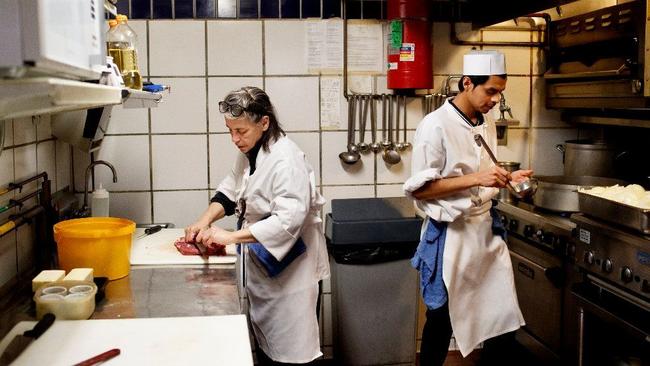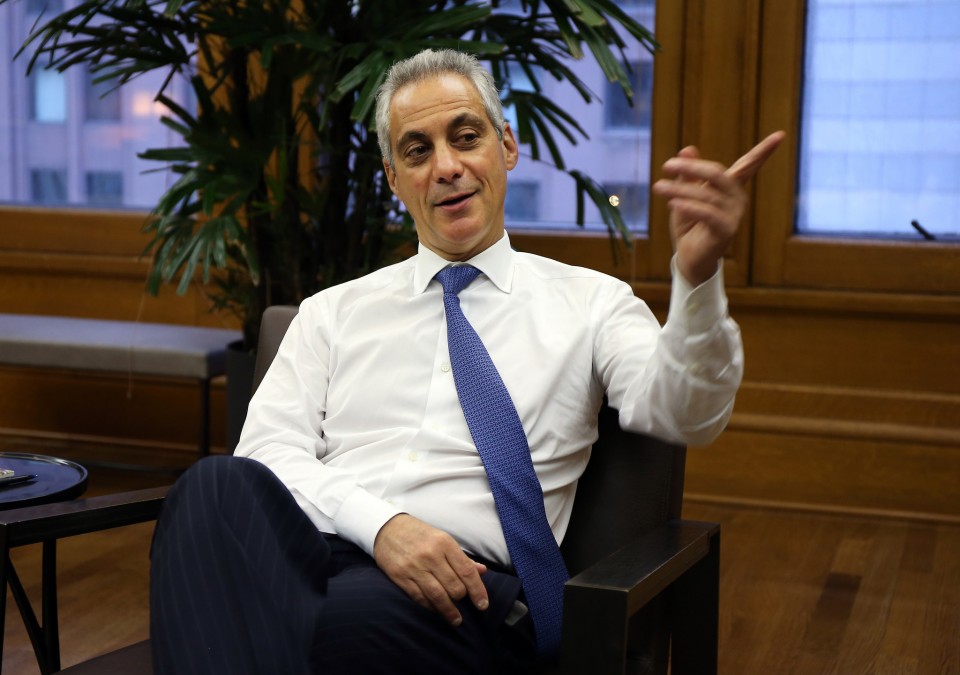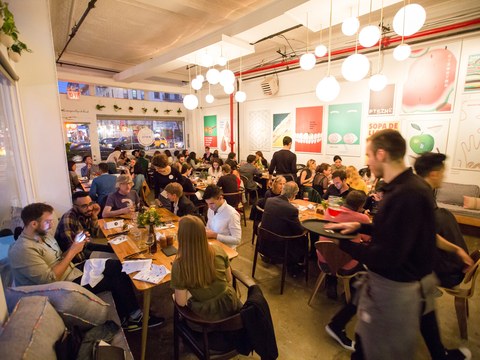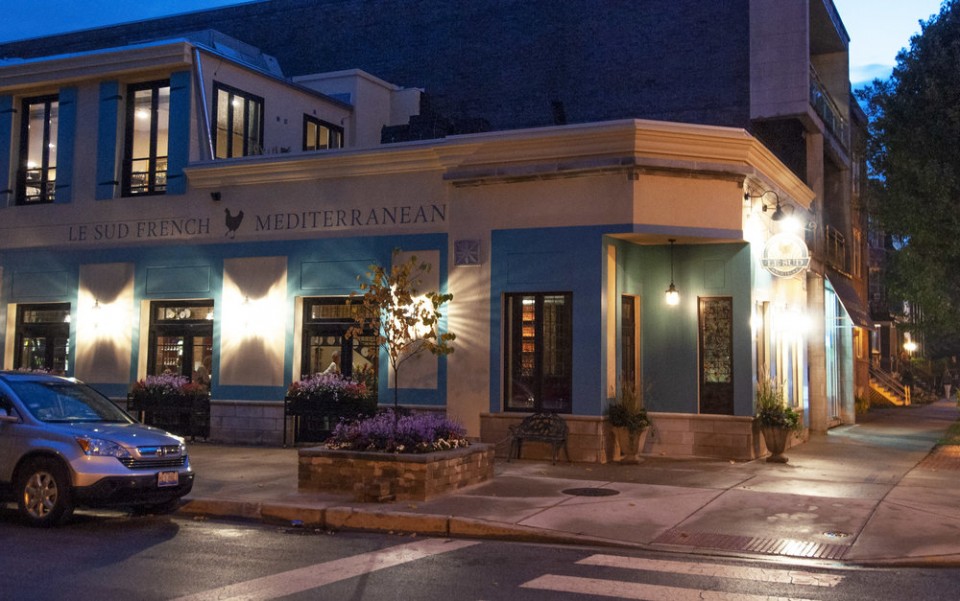
Dec 28, 2018
Alexia Elejalde-Ruiz | Chicago Tribune | December 15, 2018
New Years Eve last year found Mary Mastricola in a bind.
She had booked 80 people for a four-course prix fixe dinner at La Petite Folie, her French restaurant in Chicago’s Hyde Park neighborhood. But with two employees recently resigned and others unavailable to work the holiday, there was almost no one around to cook and serve it.
So Mastricola pulled the evening off assisted only by her loyal dishwasher-turned-cook and a University of Chicago pediatric pulmonologist who moonlights as a pastry cook in the restaurant’s kitchen.
“It was nutcase,” Mastricola recalled.
She expects better staffing as she prepares for this year’s New Year’s menu — but that crazed feeling has become familiar.
A huge boom of new restaurants in Hyde Park and throughout Chicago has left Mastricola competing not only for customers but for employees, who are quick to alight to larger restaurants that can afford to pay more.
The revolving door has led to the executive chef working 17 hours some days, taking out trash or scrubbing pots when employees don’t show up for their shifts or quit without notice.
“Someone has to fill the gap and it’s almost always me,” Mastricola said. “There is an exhaustion that sets in that makes it hard to even be civil.”
Restaurateurs for years have complained of the difficulty of finding good workers, but they say the labor crunch has intensified with a surge of new openings, a smaller pool of immigrant workers and more opportunities for cooks in nonrestaurant jobs with saner hours.
CONTINUE READING

Dec 14, 2018
Meredith Melland | WGN Chicago | December 10, 2018
CHICAGO — Mayor Rahm Emanuel announced that the James Beard Awards, the “Oscars of the food industry,” will extend its run in Chicago through 2027.
Emanuel joined WGN Morning News in studio Monday morning to talk about the impact of the Beard Awards on Chicago, the city’s growing food and entertainment sectors and the increased tourism rate.
“The Beard Award brought a floodlight onto the city in neon, and the great news is that all of our chefs have stepped up and really made the city proud,” said the mayor.
The James Beard Awards, a red carpet event to honor excellence in the food industry, moved to Chicago in 2015 after 24 years in New York. The next show will take place in May 2019.
Emanuel also mentioned that Chicago’s number of annual visitors has grown from over 39 million to over 55 million, attributing the change to new developments in cultural attractions in the theater and food industries, including the Beard Awards.
“Chicago’s on record for the highest tourism in the history of the city,” Emanuel said. “It’s a major economic driver.”
The mayor said that Cinespace, the film studio lot where shows like “Chicago Fire” and “Empire” are filmed, has evolved from a former steel plant to an industry that uses 8,500 people a day. He also noted entertainment developments in Uptown with the programming at the Uptown Theatre and Aragon Ballroom and the city’s focus on theater as an attraction.
“This year, we’re investing a lot of dollars in advertising across the country in the Year of the Chicago Theater to bring people to see the great theater and storefront theaters in the city,” Emanuel said.
CONTINUE READING

Dec 7, 2018
Ravi Baichwal | ABC 7 Chicago | December 3, 2018
Watch for more pop-up restaurants, stores and services across Chicago.
The city unveiled a new licensing system Monday to make it easier for micro-businesses to open. It’s a way to cultivate entrepreneurship in the city’s diverse neighborhoods.
At the corner of 79th and Woodlawn sits a community hub bursting with economic activity. The brainchild of Donnell Digby, The Woodlawn hosts small businesses looking to get traction for their wares — in this case, comfort food from Doughboy’s Chicago. The Woodlawn is the recipient of Chicago’s first license as a pop-up host.
“We are here to bring opportunity to fellow entrepreneurs, chefs, caterers to come into our space and bring their menus and their experience here and try and give it to the community,” Digby said.
A rotating cast of pop-up chefs will now be able to obtain licenses for 30 to 90 days costing no more than $100 to establish a retail track record. Non-food businesses are expected to join in as well.
“A lot of individuals who maybe didn’t know how to do it, the guidance, the format, the structure now is there to grow their dreams,” said Chris Dofriesen, Doughboy Chicago.
The city shadowed these and other entrepreneurs in the food, fashion and media worlds, among others, and saw they were creating economic activity. But there needed to be a regulatory framework to allow them to formalize their businesses.
“To not only support him, but all the entrepreneurs, through his kitchen and through being a pop-up host to allow the pop-up users to come in, those users can then go and pop in and out of other locations throughout the city,” Chicago Department of Business Affairs Commissioner Rosa Escareno said.
CONTINUE READING

Nov 30, 2018
John Pletz | Crain’s Chicago Business | November 28, 2018
Tock, a Chicago maker of restaurant-reservation software, is sticking around for a third course.
Even as consolidation has claimed other rivals to OpenTable—such as Reserve, which recently was acquired by Resy—Tock marches on. The four-year-old company raised $9.5 million in its third round of funding.
The deal was led by local investors Valor Equity Partners, a venture fund run by Antonio Gracias, and Origin Ventures, the fund that backed Grubhub and led Tock’s $7.5 million round two years ago.
Other local investors include Matt Maloney, co-founder and CEO of Grubhub, who also is a Tock board member; Lettuce Entertainment Enterprises; Hyde Park Venture Partners; Chicago Ventures; Pritzker Group Venture Capital; Howard Tullman’s G2T3V fund; and star chefs Thomas Keller and Andrew Zimmern.
Tock has never lacked for star power. It was co-founded by Nick Kokonas, a business partner with chef Grant Achatz in Alinea and several other top Chicago restaurants, and former Google engineer Brian Fitzpatrick.
They built Tock to handle prepaid bookings that are favored by Alinea and other high-end restaurants, as well as manage reservations and relationships with customers. The question has always been whether Tock could also serve chains and other less-exclusive restaurants.
“We’re starting to get large restaurant groups,” Kokonas said. He points to Burger & Lobster, an 18-restaurant chain in the U.K., and a larger deal that he expects to announce in January.
CONTINUE READING

Nov 16, 2018
Phil Vettel | Chicago Tribune | November 12, 2018
Le Sud is only 7 weeks old, but already looks like a hit. It has a veteran management team, a chef who cooks with intelligence and purpose, an interesting and highly affordable wine list, and bright, attentive service.
Good night, everybody!
OK, details. Le Sud (“the south”) sits on the western fringe of Roscoe Village, a cute-as-a-button corner space with 120 seats, divided equally between main-level and second-floor dining rooms. (The latter, with its own bar, is suitable for private events.) The decor is a Chicago-meets-Provence look that includes stamped-pattern silver ceiling tiles, exposed brick walls, ornate-framed mirrors, wall-mounted dinner plates and cute chandeliers that resemble uplit milk bottles.
Above the pass (the space between kitchen and dining room) is a shelf with cookbooks and knickknacks, against a slab of black slate painted with food and wine images and the phrases a votre sante (“to your health”) and nourriture de comfort (“comfort food,” though it really ought to be confort). The menu adopts the old-school approach of labeling appetizers “les entrees” and main courses “les plats.”
Given the general decline in the number of French restaurants in Chicago — particularly the dearth of new openings — these unapologetic accents carry a certain “come at me bro” bravado.
Which apparently resonates among the locals: The downstairs dining room has been filled, or nearly so, on all of my visits (none of them on the weekend). In a smart move, Le Sud takes reservations only for half its capacity, encouraging walk-in guests.
Owner Sandy Chen, who also owns Koi Fine Asian Cuisine in Evanston, took her inspiration from her travels in Southern France. But the menu, by executive chef Ryan Brosseau (Perennial Virant, Table, Donkey & Stick), also dips its toes into the Mediterranean from time to time.
CONTINUE READING





